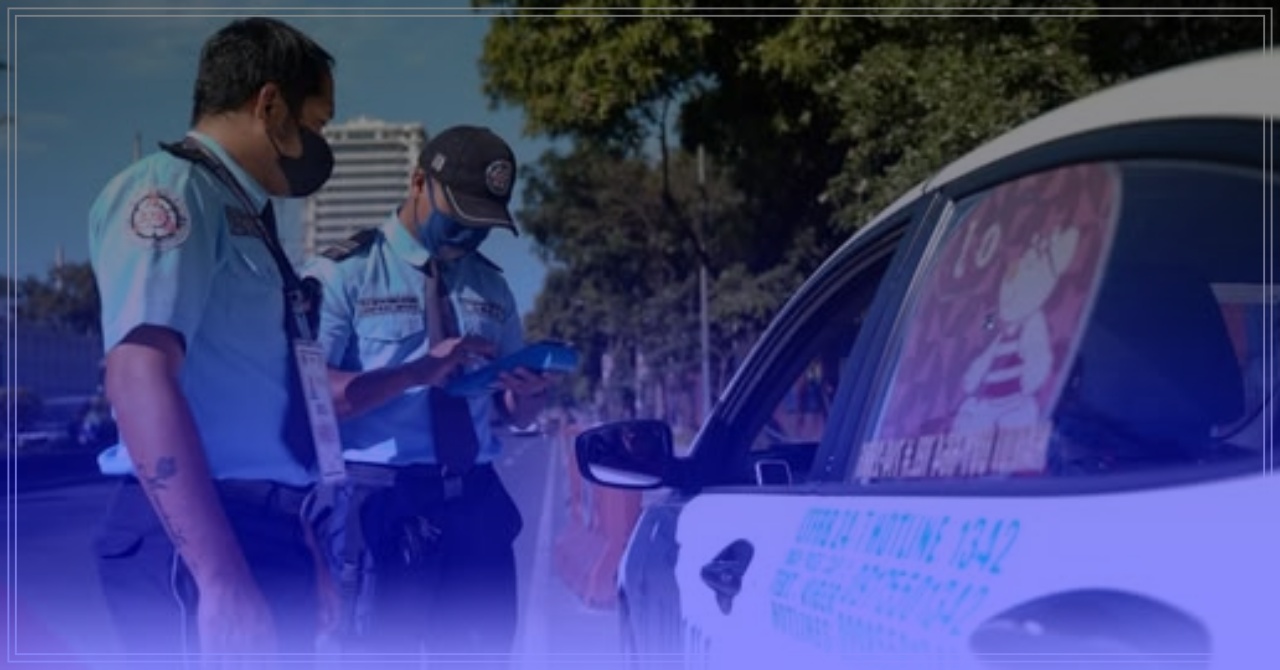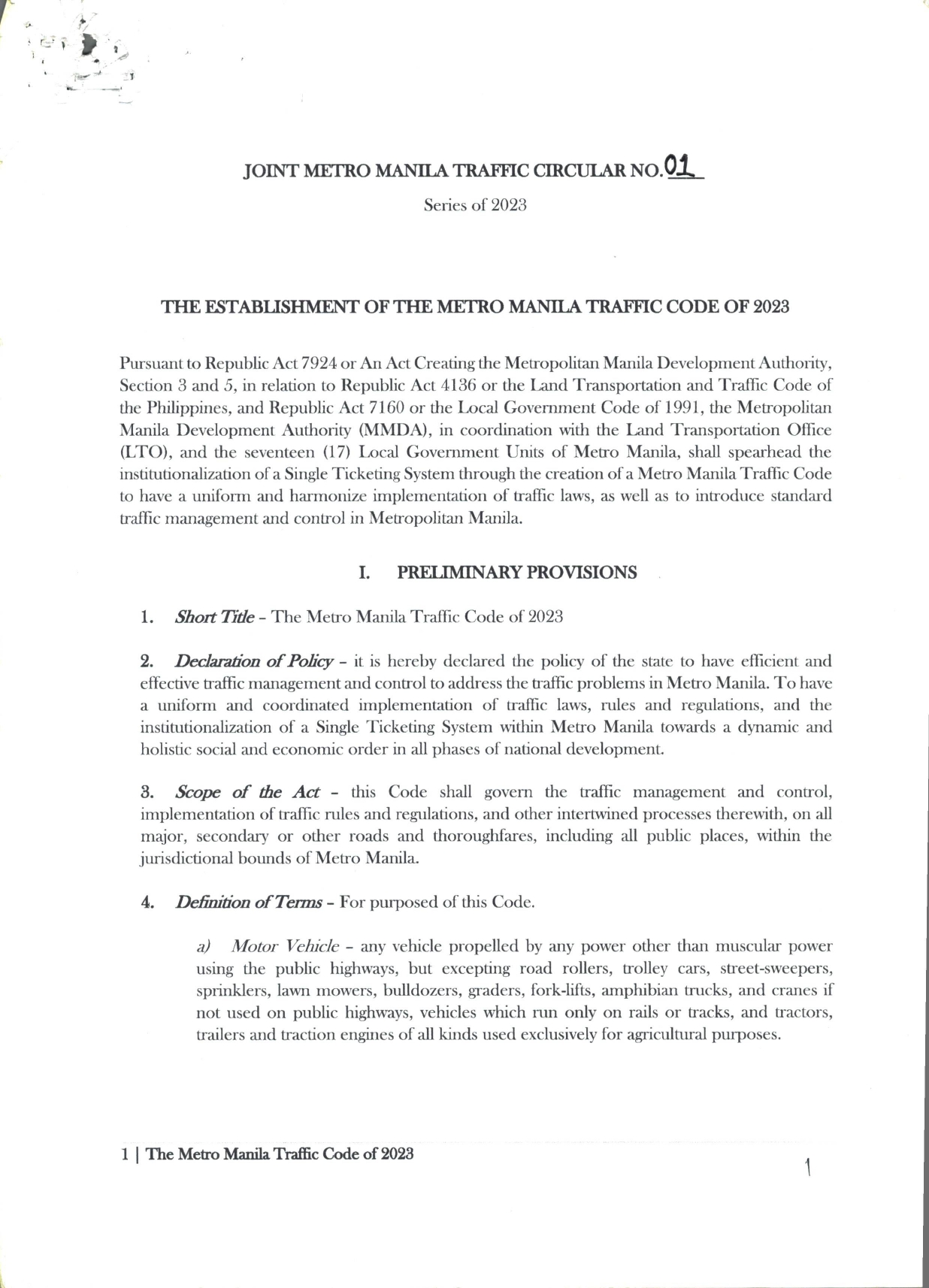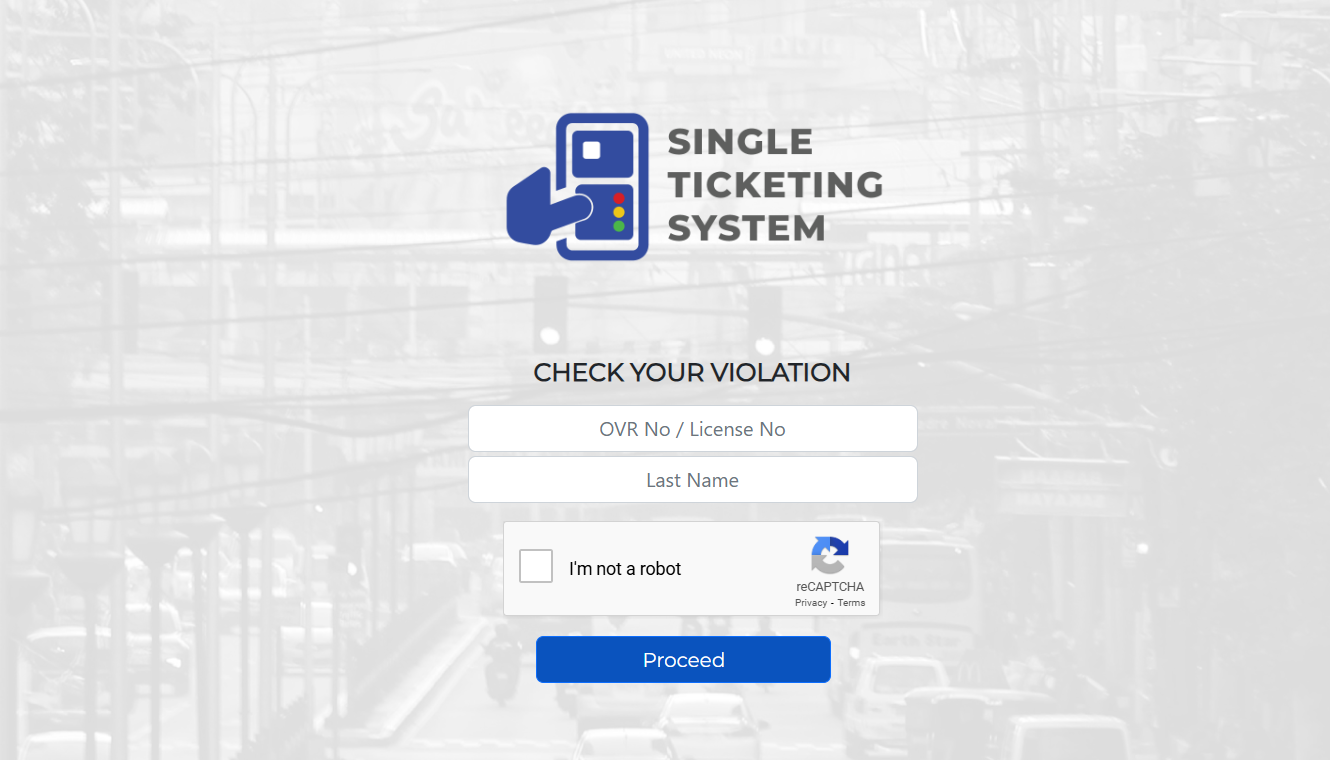Imagine this: You’re driving along a busy road, trying to follow traffic rules, but every city you pass through has different penalties and requirements.
It feels overwhelming, doesn’t it?
The MMDA introduced the Single Ticketing System (STS) with you in mind.
It’s a solution designed to streamline traffic enforcement by standardizing fines and penalties across all Metro Manila cities.
No more guessing which rules apply or worrying about unexpected fines.
As part of the Metro Manila Traffic Code of 2023, the STS ensures fairness and simplicity, making it easier for you to navigate roads without the stress of inconsistencies.
Whether you’re a daily commuter or someone driving occasionally, this system is here to make your experience smoother and more predictable.
With the STS, you can focus on driving safely instead of decoding traffic policies.

Metro Manila Traffic Code of 2023
The Metro Manila Traffic Code of 2023 is a comprehensive framework designed to unify traffic regulations across all 17 local government units (LGUs) in Metro Manila.
This code introduces the Single Ticketing System (STS), which standardizes fines and penalties for common traffic violations, ensuring consistent enforcement throughout the region.
By adopting this code, the Metro Manila Council aims to simplify compliance for motorists and enhance the efficiency of traffic management.
The implementation of the Metro Manila Traffic Code of 2023 marks a significant step towards a more organized and predictable traffic environment, benefiting both drivers and pedestrians.

Where Does the STS Apply?
STS applies to all major and secondary roads in Metro Manila.
Whether you’re running errands, commuting to work, or passing through, you’ll follow the same rules everywhere.
This consistency brings peace of mind and helps you stay focused on the road.
When Did It Start?
The dry run began on May 2, 2023, in cities like Manila, Parañaque, Quezon City, Caloocan, San Juan, Muntinlupa, and Valenzuela.
This testing phase allowed officials to see how the system works in real-life situations.
The full rollout across Metro Manila is expected soon after any needed adjustments are made.
Who Can Issue Tickets Under STS?
Not just anyone can issue a citation ticket.
Only authorized personnel from the LTO, MMDA, and local government units are allowed to do so.
They use a Unified Ordinance Violation Receipt (UOVR), a single type of ticket valid across the region.
This makes the process easier to understand and removes confusion for motorists.

Fines and Violations Breakdown
The Single Ticketing System (STS) aims to bring clarity and fairness to traffic enforcement by establishing a unified set of rules and penalties.
To help motorists navigate the new system, the MMDA has released a detailed list of traffic violations and their corresponding fines under the Metro Manila Traffic Code.
This ensures you know what to avoid to keep your driving record clean and your wallet intact.
Here’s a quick overview of common violations and their penalties:
- Disregarding traffic signs: ₱1,000
- Illegal parking (attended): ₱1,000
- Illegal parking (unattended): ₱2,000
- Number coding scheme violation: ₱500
- Truck ban: ₱3,000
- Light truck ban: ₱2,000
- Reckless driving:
- ₱1,000 (first offense)
- ₱2,000 (second offense)
- ₱2,000 plus seminar (third and subsequent offenses)
- Tricycle ban: ₱500
- Obstruction: ₱1,000
- Dress code for motorcycles:
- ₱500 (first offense)
- ₱750 (second offense)
- ₱1,000 (third and subsequent offenses)
- Overloading: ₱1,000
- Defective motor vehicle accessories: ₱1,000
- Unauthorized modifications: ₱2,000
- Arrogance/discourteous conduct: ₱500
- Loading and unloading in prohibited zones: ₱1,000
- Illegal counterflow:
- ₱2,000 (first offense)
- ₱5,000 (second and subsequent offenses)
- Overspeeding: ₱1,000
- Failure to use seatbelt: ₱1,000
- Failure to use child restraint system (CRS):
- ₱1,000 (first offense)
- ₱2,000 (second offense)
- ₱5,000 (third and subsequent offenses)
- Use of substandard CRS:
- ₱1,000 (first offense)
- ₱3,000 (second offense)
- ₱5,000 (third and subsequent offenses)
- No motorcycle helmet:
- ₱1,500 (first offense)
- ₱3,000 (second offense)
- ₱5,000 (third offense)
- ₱10,000 (fourth and subsequent offenses)
- Use of helmet with no ICC markings:
- ₱3,000 (first offense)
- ₱5,000 (second and subsequent offenses)
- Violation of Children’s Safety on Motorcycles Act:
- ₱3,000 (first offense)
- ₱5,000 (second offense)
- ₱10,000 (third and subsequent offenses)
These penalties are not just about enforcement but also about promoting road safety and responsibility among drivers.
By understanding these rules, you’re not only avoiding fines but also contributing to a safer and more orderly driving environment for everyone.
Technology in Action: Handheld Devices
Traffic enforcers are now using handheld devices to streamline operations.
These devices allow them to:
- Print tickets on the spot.
- Validate your driver’s license or vehicle registration.
- Check if there are unresolved violations.
- Accept cashless payments for fines.
With these tools, processes are faster and more transparent.
Will Your License Be Confiscated?
In most cases, traffic enforcers won’t confiscate your license for violations.
But there are exceptions.
If you have unsettled tickets, too many demerit points, or drive under the influence, your license may be taken.
This approach helps maintain order and accountability on the roads.
What Happens if You Don’t Cooperate?
Refusing to hand over your license or other documents could lead to additional violations.
It’s better to follow the rules to avoid further complications.
What If You Disagree With a Violation?
You can contest a citation within ten working days from when it was issued.
This can be done at the MMDA’s Traffic Adjudication Board or the relevant LTO or LGU office.
There’s even an option to file your complaint online for convenience.
If you win your case, there will be no penalties or demerit points on your record.
How to Pay Your Fine
You have options when it comes to paying your fines.
Visit the MMDA, LTO, or LGU office in person, or settle it online through their websites.
Acting promptly prevents additional problems, like alarms on your license or vehicle registration.
Demerit Points and Their Impact
Each traffic violation adds demerit points to your record.
Accumulate too many, and you could face suspension or cancellation of your license.
These points also determine eligibility for certain driving privileges.
Looking Forward: A Better System for All
STS isn’t just about simplifying traffic enforcement.
It’s about creating a fairer and more efficient system for everyone.
By following the rules and using the tools provided, we can all contribute to safer and more orderly roads.